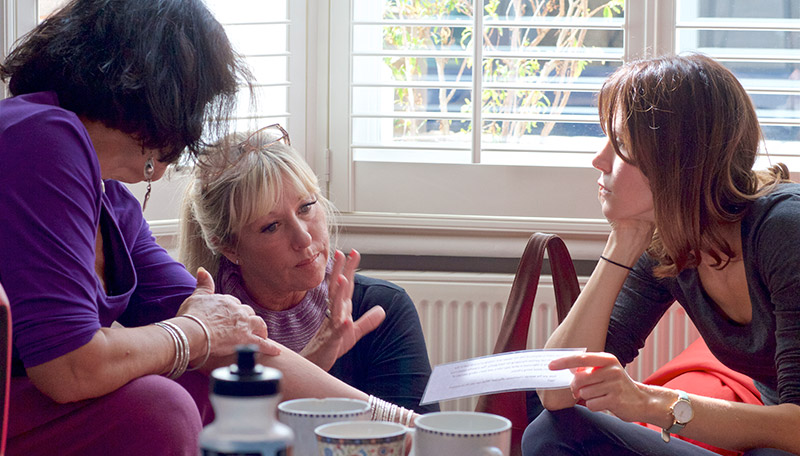A Doula \DOO-luh\ offers emotional, practical and signposting support to someone before, during and after childbirth.”
A doula believes in “parenting the parents” – enabling new parents to have the most satisfying and empowered time that they can during pregnancy, birth and the early days as they step into parenthood. This type of support supports the whole family as they prepare for and adapt to having a baby.
Interested in becoming a Doula?
Nurturing Birth run Doula Training courses throughout the UK and beyond.
Looking for a Doula?
Nurturing Birth run a Directory to help people find the right doula for them.

How is a doula going to support a family during pregnancy and birth?
As birth becomes ever-more medicalised there is far less continuity of care. A doula is a valuable support during the antenatal period and through the birth itself, enabling parents to make informed choices about their care, signposting relevant research-based information and being a reassuring presence.
Postnatally, they are able to provide the support that people used to expect of their families and community in times gone by. They can give confidence as the new mother/parent learns how to respond to their baby/babies’ needs, recovers from the birth and finds their feet.
You would make a great doula if you are:


A survey of birth doulas conducted by Nurturing Birth showed:
Percentage births which ended in caesarean section
Only 12.5% of births supported by doulas ended in caesarean section, just under half the national rate of 25.5%
12%
Doula supported births
25%
National average
Percentage women who had a home birth
26.3% of women had a home birth with doula support, compared with the 2.4% national rate.
26%
Doula supported births
2%
National average
Epidural uptake
Epidural uptake was less than 15%, compared to a 62.9% national average (49.3% spontaneous births).
15%
Doula supported births
62.9%
National average
Breastfeeding at six weeks
96.4% women who gave birth supported by a doula initiated breastfeeding, and of those 81.4% were still exclusively feeding at 6 weeks (as compared to 73.9% and 47.2%.)
81.4%
Doula supported births
47.2%
National average
It has also been shown by research undertaken in the USA that having the support of a doula is likely to reduce the length of labour (Kennell & Klaus)
This research has been published in MIDIRS.






